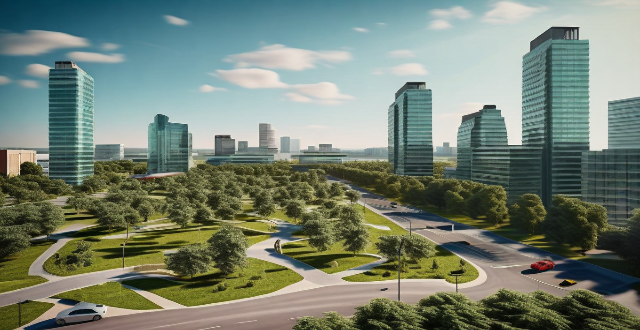Autonomous driving technology is expected to bring significant changes to our daily lives, particularly in how we live and commute. The potential benefits include improved safety on the roads, reduced traffic congestion, increased productivity during commuting time, enhanced accessibility for people with limited mobility, environmental benefits through improved fuel efficiency and reduced emissions, and changes in urban planning and infrastructure design. While there are still challenges to overcome before widespread adoption of this technology, it is clear that autonomous driving will play a significant role in shaping our future transportation landscape.

Autonomous Driving: Changing the Way We Live and Commute
Autonomous driving, also known as self-driving or driverless cars, is a technology that allows vehicles to operate without human intervention. This revolutionary technology is expected to bring significant changes to our daily lives, particularly in how we live and commute. In this article, we will explore the potential impact of autonomous driving on our lifestyles and transportation habits.
Improved Safety
One of the most significant benefits of autonomous driving is improved safety on the roads. According to statistics, the majority of accidents are caused by human error, such as distracted driving, speeding, or drunk driving. With autonomous vehicles, these risks are greatly reduced as they rely on advanced sensors and algorithms to make decisions and avoid collisions. This means fewer accidents, injuries, and fatalities on the roads, leading to a safer commuting experience for everyone.
Reduced Congestion
Another advantage of autonomous driving is its potential to reduce traffic congestion. As self-driving cars can communicate with each other and traffic infrastructure, they can optimize their routes and adjust their speed accordingly. This leads to smoother traffic flow and reduced congestion, which not only saves time but also reduces fuel consumption and air pollution.
Increased Productivity
With autonomous driving, commuting time can be transformed into productive time. Instead of focusing on the road, passengers can use their commute to work, read, or relax. This increased productivity can have a positive impact on both personal and professional life, allowing individuals to make better use of their time and achieve a better work-life balance.
Accessibility for All
Autonomous driving has the potential to improve accessibility for people who are unable to drive or have limited mobility. Senior citizens, disabled individuals, and those without access to a car can benefit from this technology as it provides them with greater independence and freedom to travel. Additionally, ridesharing services powered by autonomous vehicles can offer affordable and convenient transportation options for people who cannot afford their own cars.
Environmental Benefits
Self-driving cars have the potential to reduce environmental impact by improving fuel efficiency and reducing emissions. As autonomous vehicles can optimize their routes and speed, they consume less fuel compared to human-driven cars. Furthermore, electric self-driving cars can help reduce carbon emissions and contribute to a cleaner environment.
Changes in Urban Planning
The rise of autonomous driving may lead to changes in urban planning and infrastructure design. With fewer parking spaces needed due to the increased efficiency of ridesharing services, cities can repurpose existing parking lots for other purposes such as parks or housing developments. Additionally, the reduction in traffic congestion may allow for narrower streets and more pedestrian-friendly designs, promoting healthier and more sustainable communities.
In conclusion, autonomous driving has the potential to revolutionize the way we live and commute by improving safety, reducing congestion, increasing productivity, enhancing accessibility, providing environmental benefits, and changing urban planning. While there are still challenges to overcome before widespread adoption of this technology, it is clear that autonomous driving will play a significant role in shaping our future transportation landscape.